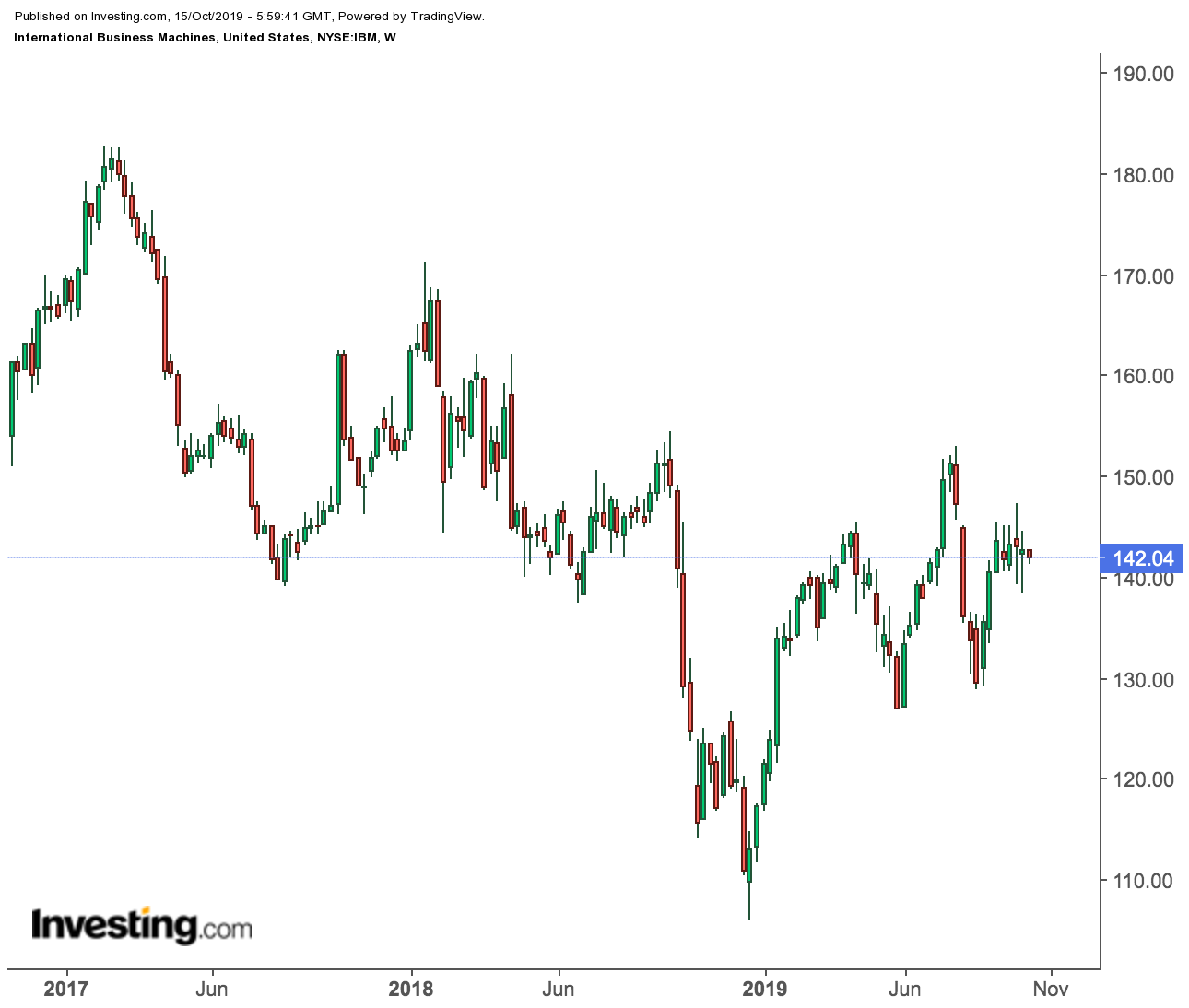* Reports Q3 2019 results on Wednesday, Oct. 16, after the market close
* Revenue Expectation: $18.23 billion
* EPS Expectation: $2.67
When International Business Machines (NYSE:IBM) CEO Ginni Rometty speaks, she has a compelling story to tell about the turnaround that her century-old company is trying to pull together.
She's betting on hybrid cloud technology to reverse the lingering slide in sales after her $34-billion acquisition of Red Hat last year. She says the deal will add a relatively high-margin software business to IBM’s stable of offerings at a time when the company’s big clients are shunning its hardware and storing their data on cloud services provided by rivals, including Microsoft Corporation (NASDAQ:MSFT) and Amazon.com Inc (NASDAQ:AMZN).
“This company has had to be reinvented many times,” Rometty said in an interview on Bloomberg Television last month. “It’s something many other companies have yet to face. It is one thing to put out new products, but it is something else when the competitive landscape attacks your core business models and you have to develop a new one.”
Work In Progress
But when you dig a little deeper, that turnaround still remains very much a work-in-progress. In the period that ended on June 30, IBM’s sales fell for the fourth straight quarter. Revenue in the company’s IT services division declined by 6.7% year-over-year in the second quarter, while the sales from the unit that houses IBM’s mainframe business fell almost 20%.
When the company reports its third-quarter earnings tomorrow, Rometty needs to prove that investor optimism about its revival is justified and that it’s well on track to consistently beat expectations.

If Big Blue is successful in showing that its turnaround is gaining momentum, this year's powerful rally—which put the company's shares among the best performing blue-chip stocks on the Dow Jones Industrial Average—is likely to extend.
Shares of this legacy tech giant, which dominated computing's early decades with inventions such as the mainframe and later the floppy disk, were trading at $142.04 at Monday's close — up about 25% this year.
With this upsurge in the stock, investors are keen to see Red Hat significantly improving the company’s sales and the bottom-line. About 85% of all enterprises are expected to adopt a hybrid cloud approach, in which most will use a mix of public cloud services like Amazon (NASDAQ:AMZN) Web Services alongside their own private cloud networks, according to a forecast from Jefferies & Co.
Bottom Line
In the short- to medium- run, IBM will continue to be impacted by the structural headwinds that are hurting its sales and profitability. But for long-term investors, whose aim is a steady income stream, owning IBM stock makes a lot of sense.
Despite the recent rally, its stock still yields 4.6% — more than double the S&P 500′s 1.85% average — with an annual payout of $6.48. The company has increased its dividend five times in the past five years. We believe the upside potential remains strong, if the company is able to show that its Red Hat acquisition has begun to pay off.
